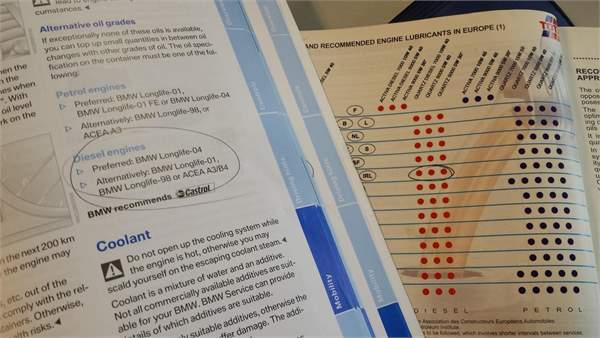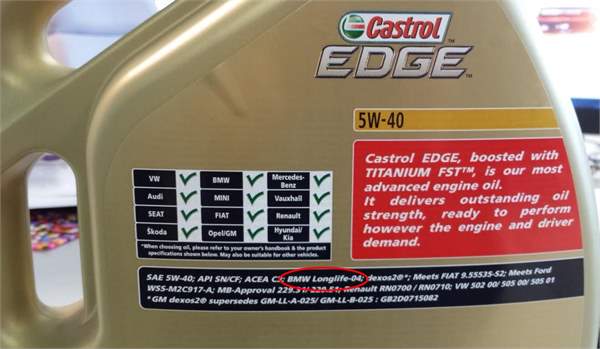Right, I'm going to get my apology in good and early because the following rant is probably going to sound like I'm having a pop at car forums, but that's not the case at all, I'm a member of quite a few and think they're a great source of info, banter and are in general a massively positive thing for car culture. What really grinds my gears is something quite specific but often occurs on forums and other online and offline spaces......and that is lads talking utter nonsense about
engine oil.
Engine oils are one of the most frequently discussed topics on any car forum or group. The conversation is usually sparked off when some unsuspecting noob comes along and asks what type of oil is best for his car. What usually follows is pages and pages of opinion, waffle and conjecture, often leaving the poor lad more confused than when he asked the question.

The number 1 misconception people have is that brand 'X' is better than brand 'Y' or that if an oil is cheap there must something wrong with it. Unless you've got a lab or have an excellent technical understanding of the products, having read the detailed data sheets, how on earth could you possibly know which oil is better?
The truth is, you don't.
What 99% of people are actually basing their opinion on is pure marketing. Either that or their mate Dave who drives a taxi and knows what he's talking about once used 'X' brand of oil and his engine went bang, so it must be crap! This kind of commentary drives me mad and is so dangerous because people do actually take it on-board as fact. For the vast majority of us driving normal road cars, what matters, what's vitally important when it comes to
engine oil is the recommended spec for your car and you'll find it in your owners manual.

Interestingly both of the owners manuals above (from BMW & Peugeot) are affiliated with and recommending specific brands of oil, this is purely because of a marketing partnership and can be completely ignored, the spec is what's important.
 Lets dispel a few myths:
Lets dispel a few myths:
- Your car doesn't just need semi-synthetic or fully synthetic oil - it needs the right spec oil (which may turn out to be a semi-synthetic or fully synthetic oil)

- Your car doesn't just need a 5w30 grade oil - it needs the right spec oil (we list about 7 or 8 different 5w30's on our site alone - the grade you need may vary depending on the climate in which you live)
- Your car doesn't need a certain brand of oil - it doesn't know what brand of oil it's using - it needs the right spec oil
- And as i read on a Honda forum recently - The brand of oil you choose will depend on how much you use VTEC! - No. No it wont. Just choose the right spec for your VTEC yo.
Oil Specifications
All modern oils are manufactured to meet certain standardised European/US or vehicle manufacturers specifications, you'll see them listed on the bottles. For example ACEA C3 or VW: 504.00 / 507.00. If a cheaper, non-branded oil carries a VW: 504.00 / 507.00 spec on the bottle then that means it is 100% suitable for use in any car that requires a VW: 504.00 / 507.00 spec. The same goes for a more expensive, branded oil which carries the VW: 504.00 / 507.00 spec. It also is 100% suitable for use in any car that requires that spec. But no more and no less. To achieve a VW: 504.00 / 507.00 spec an oil must be made up of a predetermined set of ingredients (additives) and it is the same set of ingredients regardless of the brand or price point. With both oils your warranty will be intact and your engine will not know the difference between the two.

Now in the past this wasn't always the case, like all industries, the lubricant industry has for many years battled with regulating the quality of lubricants being sold to distributors and end users. There were companies who themselves did not fully understand the technology required to produce a quality lubricant, so for some time the misconceptions were true, if your lubricant did not come from one of the major brands you couldn't always guarantee the quality. However the Industry has changed, there are now governing bodies to regulate the quality & independent committees systematically test lubricants throughout the marketplace. The effect of these independent bodies has increased and standardised the quality of lubricants throughout the product sector.
So why is there such a difference in price?
Independent blenders produce lubricants to specifications dictated by the product sector. For automotive engine oils, the blender produces multigrade engine oils using SAE J300 and ACEA regulations to achieve the test parameters for that grade. The independent blender (as opposed to major brands such as Castrol or Shell) does not have the expense of bench tests for specific OEM requirements as they rely on the research and development of the additive companies. The blender would work with the additive companies e.g. Lubrizol, Infineum, and Afton, to produce an OEM regulated product. So a private label 5W30 fully synthetic oil meeting the requirements of API SN, ACEA C3, VW 504/507, BMW LL04, Porsche C30 Will be acceptable for use in the recommended performance vehicles, just the same as Castrol GTX or Shell FE range, but at a fraction of the costs.

An independent blender can produce a lubricant to the same performance level without spending on R&D (which can cost millions), use standard packaging (bespoke packaging costs tens of thousands), and no major marketing costs (again this can cost millions - How much do you think it cost Castrol to be primary sponsors of the 2014 Football World Cup?!) All of these expensenses will be re-cooped in the cost of product. Therefore if the independent blender doesn’t have any of the outlays mentioned above, their product can be brought to market for considerably less.
That stuff's cheap Sh**e!
A common assumption is because the oil is cheap the quality is poor – Not necessarily so, look at the spec your engine needs, look at the specs on the bottles, if the specs match, then the oil meets the requirements for your engine. As far as the specifications are concerned, the quality of the oil is the same as the branded product but the additional costs are simply not there. End of story, it's that simple.
Now just to be clear we're not saying that all oils on the market are absolutely identical, of course that isn't the case. There are oils that are designed with specific usage or environments in mind, for example competition engines in race cars which run at constantly high rpm under massive load, understandably they may need a different oil than your mum's Micra and this is where you need to talk to the competition oil vendors or the guys on the forums who really do know what they're talking about (and there are plenty of them) and see what the actual benefits of these oils are. And be honest with yourself, does your remapped GTi really need 70 quids worth of Millers race oil? probably not. Does your highly tuned, 500 hp Evo race car need it? Possibly so.
Here endeth today's rant!
Feel free to add your feedback in the comments below
More engine oil articles:
How to find the right oil for your car
Understanding engine oil
Engine oil labeling explained
VIDEO:
How to change your engine oil